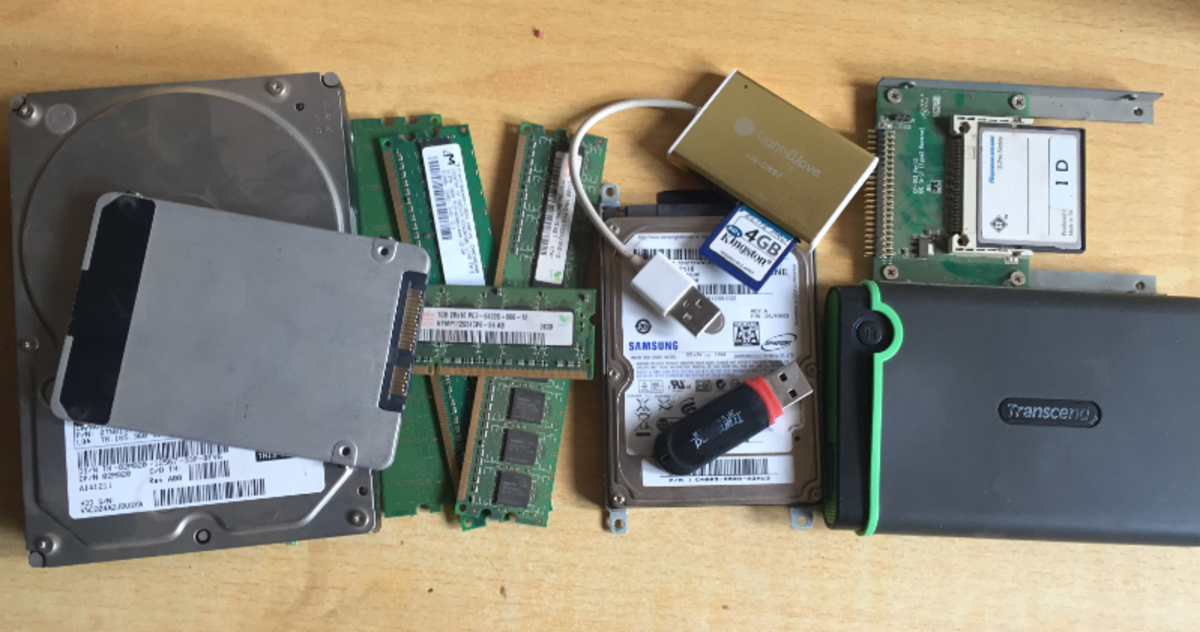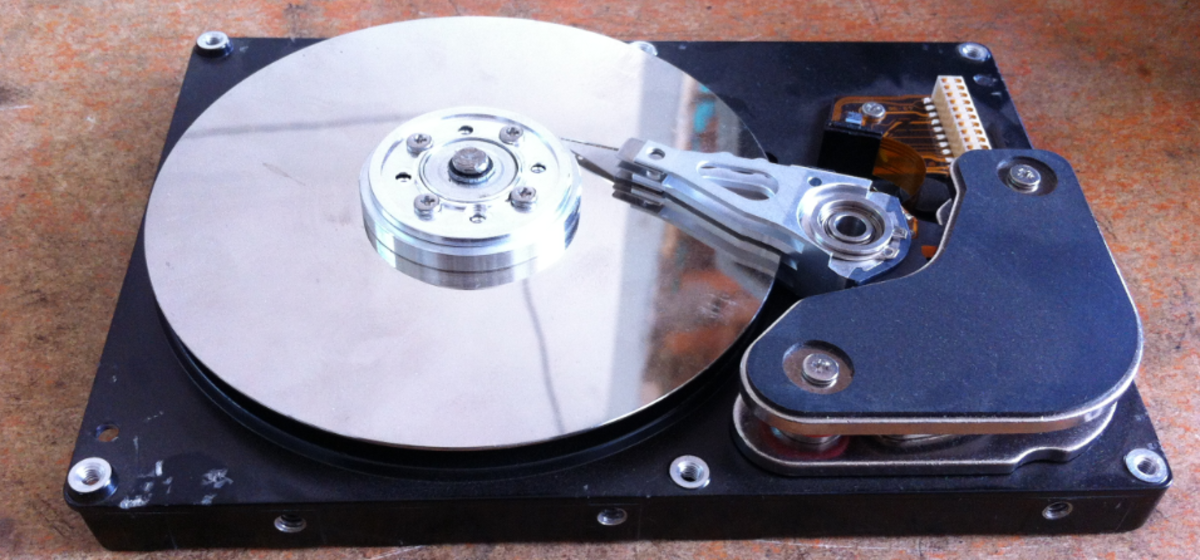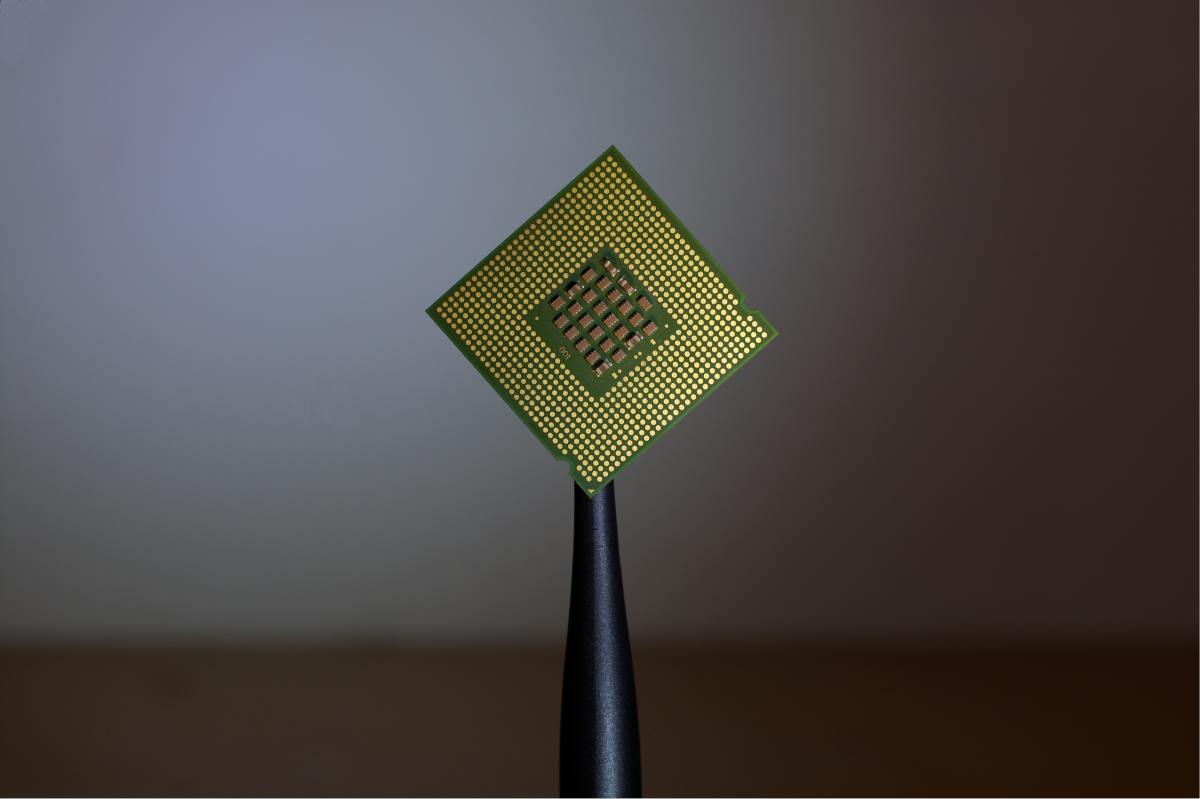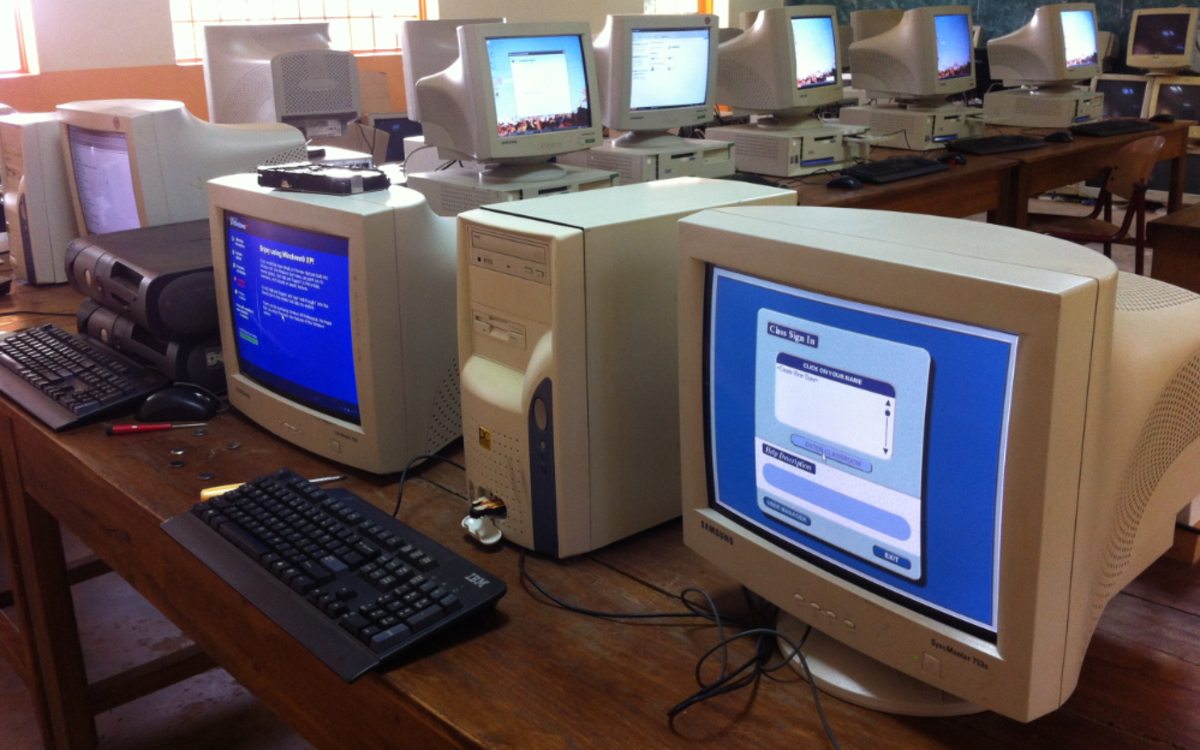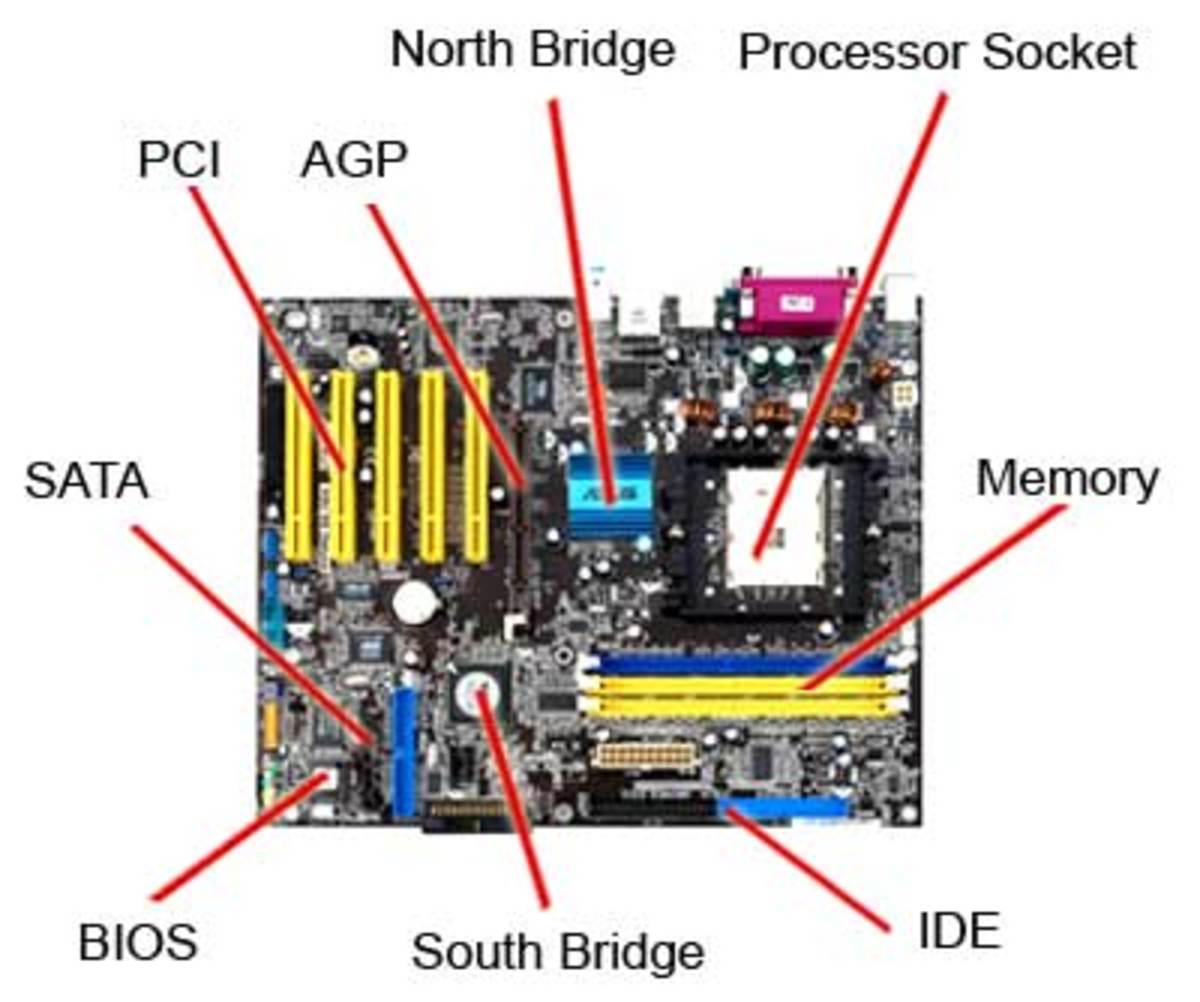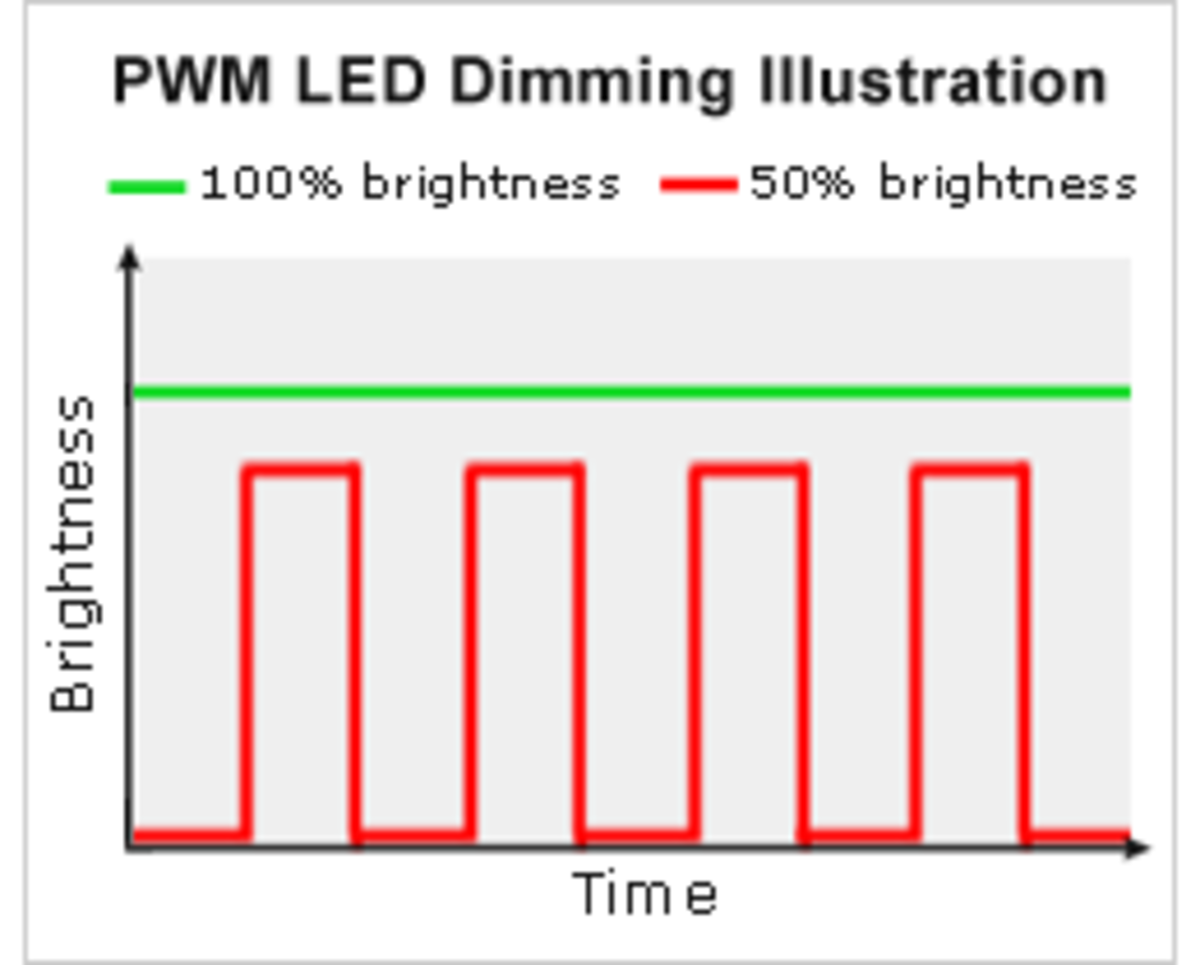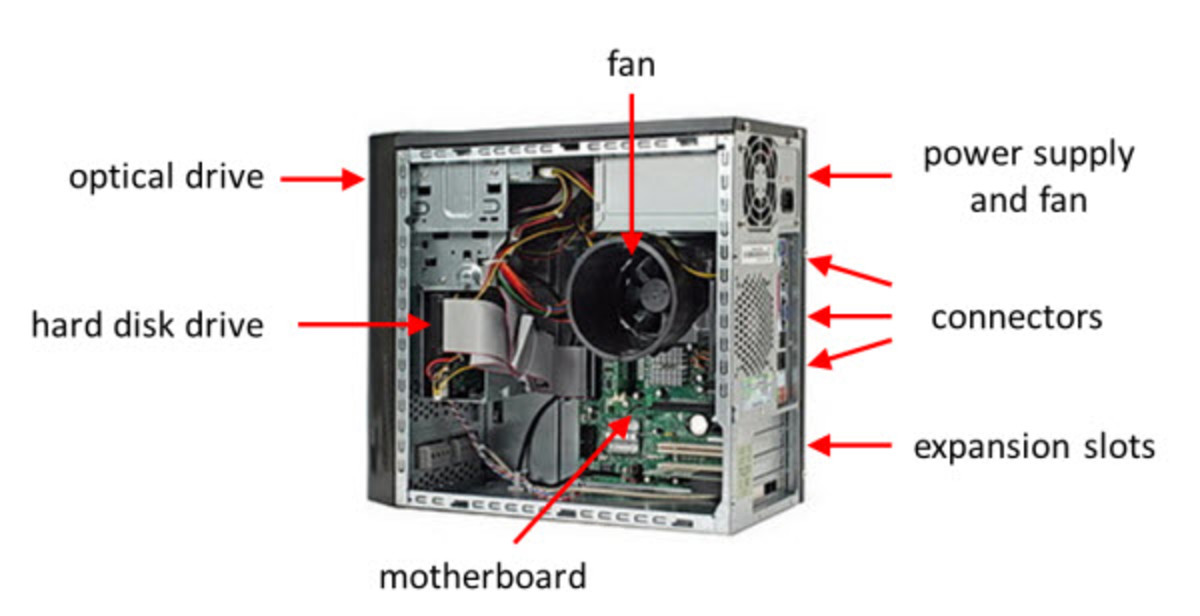- HubPages»
- Technology»
- Computers & Software»
- Computer Hardware
Computer Memory
MEMORY
Memory consists of electronic components that store instructions waiting to be executed by the processor, data needed by those instructions, and the results of processed data (information). Memory usually consists of one or more chips on the motherboard or some other circuit board in the computer.
Memory stores three basic categories of items: (1) the operating system and other system software that control or maintain the computer and its devices; (2) application programs that carry out a specific task such as word processing; and (3) the data being processed by the application programs and resulting information. This role of memory to store both data and programs is known as the stored program concept.
Bytes and Addressable Memory
A byte (character) is the basic storage unit in memory. When application program instructions and data are transferred to memory from storage devices, the instructions and data exist as bytes. Each byte resides temporarily in a location in memory that has an address. An address simply is a unique number that identifies the location of a byte in memory. The illustration shows how seats in a concert hall are similar to addresses in memory: (1) a seat, which is identified by a unique seat number, holds one person at a time, and a location in memory, which is identified by a unique address, holds a single byte; and (2) both a seat, identified by a seat number, and a byte, identified by an address, can be empty. To access data or instructions in memory, the computer references the addresses that contain bytes of data.
Memory Sizes
Manufacturers state the size of memory chips and storage devices in terms of the number of bytes the chip or device has available for storage. Recall that storage devices hold data, instructions, and information for future use, while most memory holds these items temporarily. A kilobyte (KB or K) is equal to exactly 1,024 bytes. To simplify memory and storage definitions, computer users often round a kilobyte down to 1,000 bytes. For example, if a memory chip can store 100 KB, it can hold approximately 100,000 bytes (characters). A megabyte (MB) is equal to approximately 1 million bytes. A gigabyte (GB) equals approximately 1 billion bytes. A terabyte (TB) is equal to approximately 1 trillion bytes.

